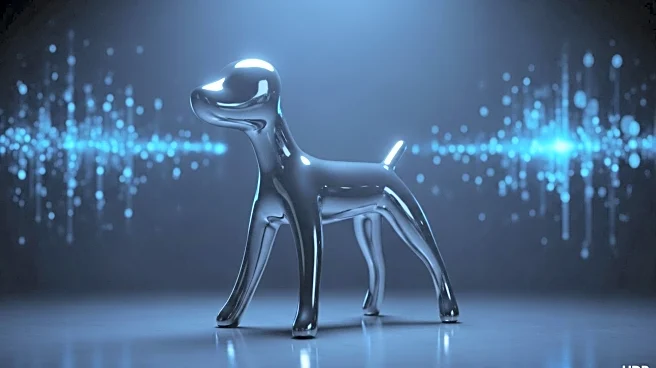What's Happening?
The French dystopian thriller 'Dog 51', directed by Cédric Jimenez, presents a narrative centered around the influence of algorithms on society. Set in a future Paris, the film follows two law enforcers, Zem and Salia, portrayed by Gilles Lellouche and Adèle Exarchopoulos, as they navigate a city divided into class-based zones and controlled by an AI named ALMA. The film, which premiered at the Venice Film Festival, draws comparisons to other sci-fi classics like 'Blade Runner' and 'Minority Report', showcasing a world where algorithms dictate crime-solving and societal order. Despite its futuristic setting, the film is noted for its nostalgic elements, including 1990s-style haircuts and a karaoke scene featuring 4 Non Blondes' 'What's Up'.
Why It's Important?
The film 'Dog 51' highlights the growing concern over the role of algorithms in modern society, reflecting real-world issues such as class division, police militarization, and the pervasive influence of technology. By depicting a future where AI controls significant aspects of life, the film raises questions about privacy, autonomy, and the ethical implications of algorithm-driven governance. This narrative resonates with current debates in the U.S. regarding data privacy, surveillance, and the balance between technological advancement and human rights. The film's portrayal of a divided society also mirrors ongoing discussions about economic inequality and social justice.
What's Next?
As 'Dog 51' continues to gain attention, it may spark further dialogue about the ethical use of AI and algorithms in governance and law enforcement. The film's themes could influence public policy discussions, particularly in the U.S., where technology companies and lawmakers are grappling with the implications of AI on privacy and civil liberties. Additionally, the film's reception might encourage filmmakers to explore similar themes, potentially leading to more narratives that question the impact of technology on society.
Beyond the Headlines
Beyond its immediate narrative, 'Dog 51' invites viewers to consider the long-term cultural and ethical shifts that could arise from an algorithm-driven society. The film's depiction of a future Paris serves as a cautionary tale about the potential loss of individuality and the dangers of relying too heavily on technology for societal control. It also challenges audiences to reflect on the balance between innovation and tradition, and the importance of maintaining human connections in an increasingly digital world.









